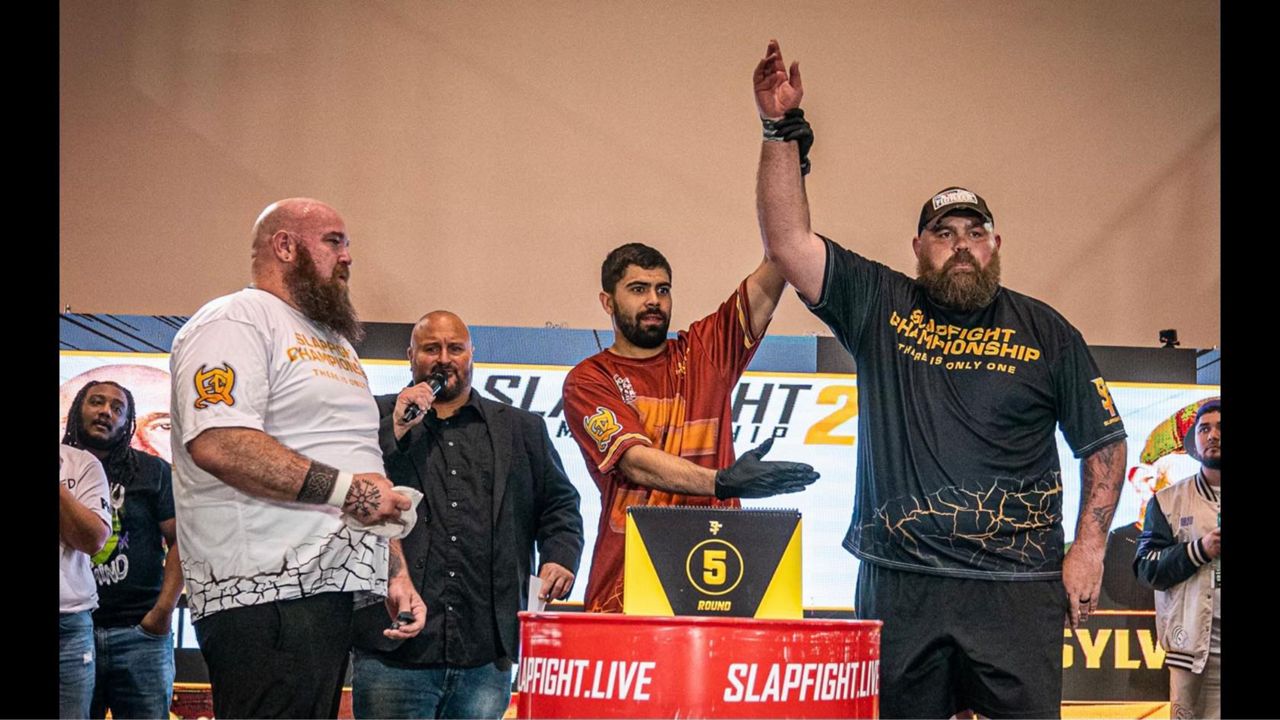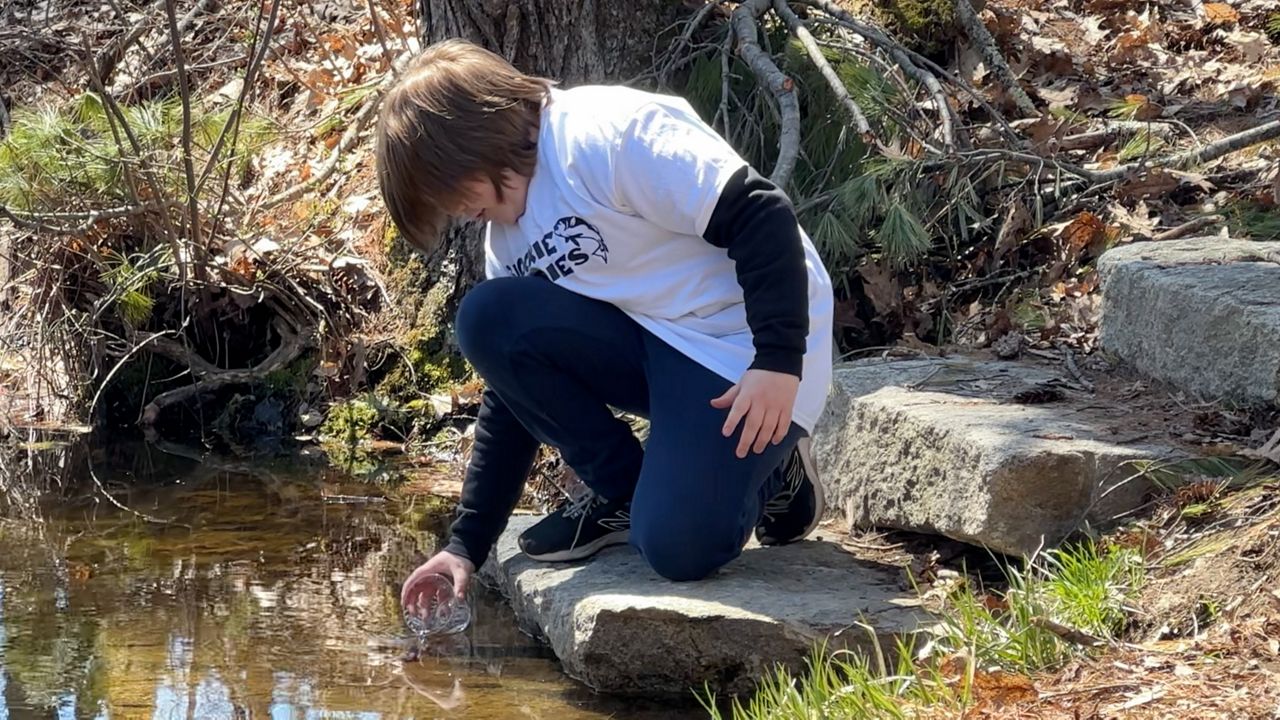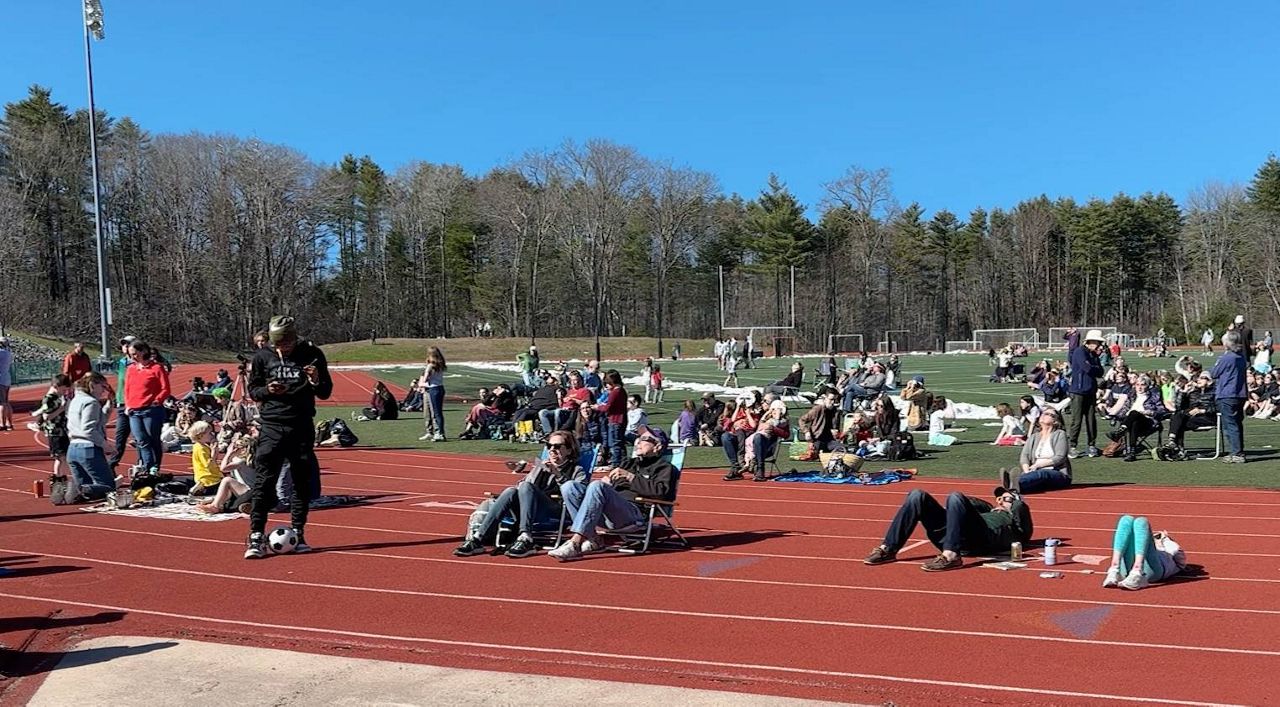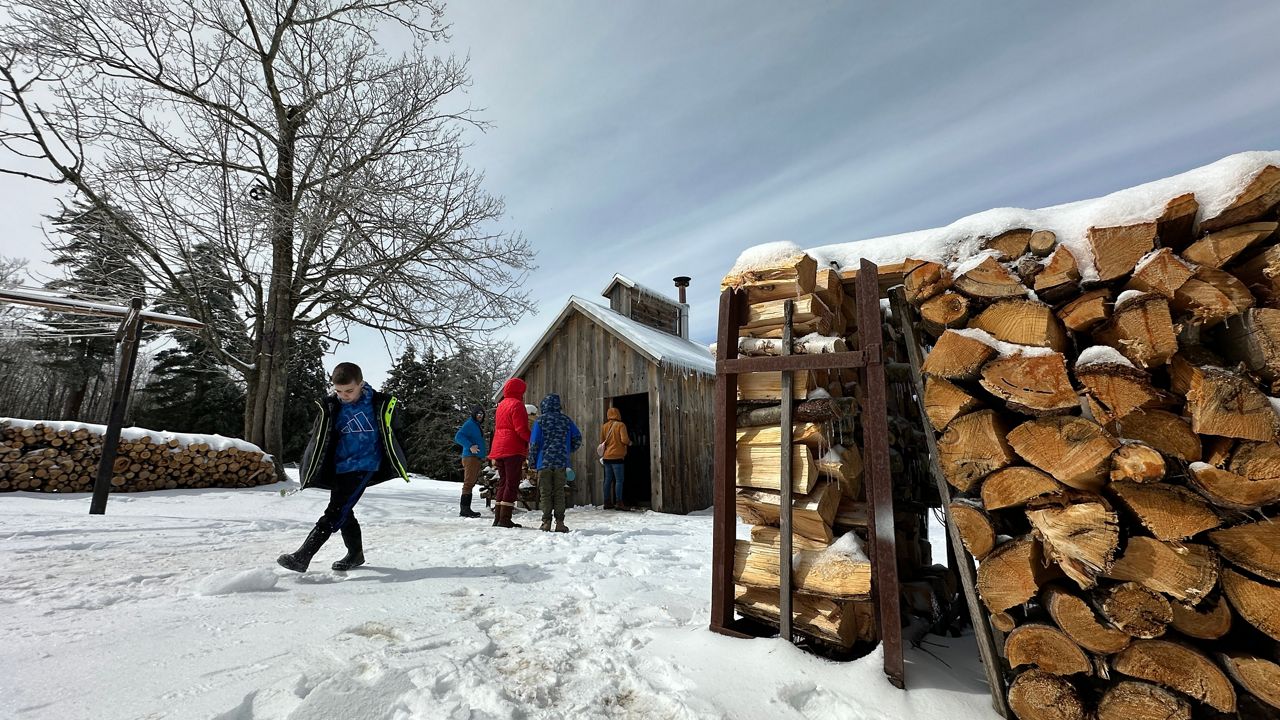A Mainer and longtime martial arts competitor has come out of retirement to take part in a new sport centered around slapping opponents in the face.
Eastbrook native Tim “The Maine-iac,” Sylvia, has embraced slap fighting, after learning about the sport by watching clips on social media.
“I was captivated immediately,” he said. “I was like, ‘Oh my God, this is awesome!’”
Sylvia is already making a name for himself. Last month in Oklahoma, he won a competition with a single knockout blow. He is scheduled to compete in over the next few months, all leading up to the championship, which he said will take place late this summer or early fall.
The Nevada Athletic Gaming Commission is credited with catapulting slap fighting into the legitimate mainstream on Oct. 18, 2022. On that date, the commission officially ruled that “’Slap Fighting’ contests or exhibitions feature blows struck which may reasonably be expected to inflict injury, therefore it qualifies as unarmed combat.”
As a result, according to the commission, slap fighting competitions in that state must be regulated by the commission, as are similar sports such as boxing and MMA.
The sport is broken up into several leagues, many of which are local and do not have well-documented histories. Sylvia competes in Slap Fight Championship, a league whose matches air on Pay Per View television.
The sport has a detailed set of rules. Each match is 10 rounds. Each round consists of participants taking turns slapping each other in the face. Each slap may earn the slapper and the slappee (or “defender”) a score based on the slap and the defender’s response. If a defender is knocked down, just as in boxing, the referee gives the defender a count of 10 to get up and demonstrate fitness to continue.
'I’M A DIFFERENT BREED’
Sylvia, 47, graduated from Ellsworth High School in 1994. Even in his high school years, Sylvia was already honing his competitive fighting skills in karate and wrestling. After high school, Sylvia worked odd jobs, including construction work and moonlighting as a bouncer. All the while, he dreamed of competitive fighting, taking on Brazilian Jiu-Jitsu to further establish his grappling game.
He went on to compete in MMA from 1999-2015, moving to Iowa for more competitive training. Over his 16-year MMA career, Sylvia competed in more than 40 fights, winning 22 by knockout. He fought for several international circuits but is best known for competing in The Ultimate Fighting Championship.
In UFC, Sylvia had 31 wins and 10 losses.
Now still living in Iowa and working as a project manager for a roofing company, he said he has retired from MMA fighting for good, but still dreamed of competing in some way.
A chance encounter with a promoter in Branson, Missouri, in March led to him first assisting the staff running slap fighting events, and eventually asking to join the circuit.
“I miss competing,” he said. “I miss entertaining people, being in front of a crowd, hearing the cheers, the roars, the boos or whatever it is. That’s something you cannot mimic, you can’t replace it. It’s just in you. Once you do that, it’s in your blood.”
Sylvia’s debut match, against an opponent from El Paso, Texas, described only as “The Bouncer,” included statistics displayed with fire and spark effects, all to a heavy metal soundtrack. Both men sported thick beards and thematic t-shirts, with Sylvia wearing a baseball cap backwards.
After being introduced, both men stood face to face over a steel barrel and took turns slapping each other across the face. Sylvia’s first slap knocked The Bouncer down, while The Bouncer’s first slap made Sylvia smile, like the heavy in an action movie shrugging off a punch. Later, Sylvia would win with a knockout blow.
Since the Nevada commission’s ruling, the sport has developed a national following, and has been presented on television with much of the same fanfare commonly seen with other combat sports.
Not all of the attention has been good. The sport has drawn criticism from the Brain Injury Association of America, which has asked the Nevada Athletic Commission to suspend its October 2022 ruling.
In a Feb. 23, letter, the association indicates slap fighting increases the risk to participants of developing, among other conditions, chronic traumatic encephalopathy, or CTE, a condition that has been at the heart of criticism of other mainstream sports such as football.
“Your approval gives legitimacy to an activity that is nothing short of watching traumatic brain injury happen to its participants in real time,” Rick Willis, the association’s president and CEO, and Paige Melton-Ivie, the association’s chairwoman, wrote. “By the nature of this event’s rules, which stipulate that participants are not allowed to defend incoming blows, you are allowing a situation where participants are repeatedly concussed for entertainment. There is no sport here.”
Sylvia shrugs off such concerns, reasoning that if he were destined to get hurt that badly, it would have already happened during his MMA career.
“I’m a different breed, man,” he said. “I just love that <expletive>.”
Sylvia said the sport appealed to him because, unlike boxing or MMA, there are fewer physical fitness barriers for entry. Anyone, be they a combat sport neophyte or a seasoned veteran like himself, he said, can take part.
“Any guy off the street can do it,” he said. “You don’t have to be an athlete to do it.”
At six feet, eight inches tall and 375 pounds, Sylvia competes in the super-heavyweight division, and joked, “I have a dad bod.”
Still, he is unafraid to face a beefy opponent looking to hit him in the head. During his MMA career, Sylvia focused more on offense than defense, which he said prepared him well for slap fighting.
“I liked to get in the pocket and just throw,” he said.
Sylvia said his 12-year-old son loves watching him compete.
“I really like when that guy slapped you and you just smiled,” Sylvia recalled his son telling him.
Sylvia said his wife also backed his return to the ring, and his fan base is also excited to see him competing again.
“The support I have right now doing this, it’s huge,” he said.









